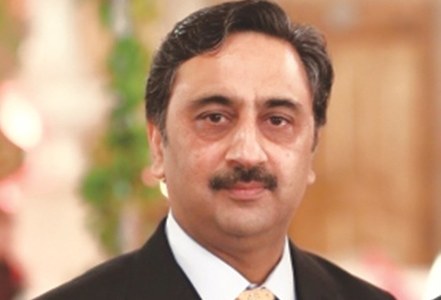Pakistan asks India to share Kishanganga water data

LAHORE: Pakistan has asked India to immediately share the data showing inflow and discharge of water at the Kishanganga dam and water flows in different rivers.
It has also sought dates for inspection of the 330MW hydroelectric project that India had agreed to during a two-day meeting held in August in Lahore between Indus water commissioners of the two countries.
“We recently asked Indian authorities for Indus waters in writing to give us dates for inspection of the Kishanganga dam as soon as possible. Through the letter, we have also pressed Indian authorities to immediately share the data concerning flows of water at the river and releases/discharges, in/outflows at the dam with us under the relevant provisions of the Indus Water Treaty,” Pakistan’s Commissioner for Indus Waters Syed Muhammad Mehr Ali Shah told Dawn on Thursday.
Dates for inspection of 330MW power project also sought
“We are receiving water at Jhelum basin in our territory, but to ascertain our need or requirement we need data India is obligated to share with us time to time,” he said.
During the 115th meeting of the Permanent Commission for Indus Waters, India had agreed to allow Pakistan to inspect the projects built on the Jhelum basin, including Kishanganga hydroelectric project, in the near future.
Similarly, Islamabad had agreed to allow New Delhi to carry out inspection of the Kotri barrage over the Indus under Article VIII (4) (c) of the Indus Waters Treaty (IWT). Besides Kishanganga, India had also agreed to let Pakistani experts inspect sites of two hydropower projects — 1,000MW Pakal Dul and 48MW Lower Kalnal at Chenab basin — by the end of September.
However, Indian authorities later confirmed on Oct 7 to 11 for tour/inspection of the projects by a three-member Pakistani team, headed by the Indus water commissioner. But finally it postponed the inspection on the pretext of local elections in held Kashmir.
Mr Shah said that Pakistani authorities wanted to have a detailed tour of the Kishanganga project since Pakistan had already raised various objections on its design and construction.
Pakistan has already approached the World Bank, demanding constitution of a seven-member court of arbitration to address its concerns. On the other hand, India wants a neutral expert over the issue.
However in June this year, the World Bank reportedly requested Pakistan to stand down from pursuing its stand of referring to the Kishanganga dam dispute to the court of arbitration and instead accept India’s offer of appointing a neutral expert, but Pakistan didn’t do so and stuck to its stance to date.
“Our stance is still the same as it was before. Under the treaty, it is our right to select the way that suits us. And that is the court of arbitration. Similarly, the World Bank, under the treaty, could not proceed further until willingness of both the parties at a mutually agreed stance. Recently, the WB president reportedly assured our foreign minister to make another effort to address Pakistan’s concerns on the project,” the commissioner explained.
In reply to a question about the fate or status of Pakistan’s objections since the project has already been completed by India, Mr Shah said that it did not matter.
“Technically, Pakistan’s objection can be addressed even now, as our concerns are related to design and legally, under the IWT, if any project facing objections by either party could not be recognised,” he maintained.
Under the treaty, he said, if the decision came after completion of any project facing objections raised by either party, the relevant portions of such schemes would be demolished.
“Under the same provisions, the neutral expert had got demolished the upper side of the Baglihar dam in India,” Mr Shah said.
He said that Pakistan had also written a letter to Indian authorities to give dates for inspection of Pakal Dul and Lower Kalnal projects at Chenab basin.
Published in Dawn, October 5th, 2018













































